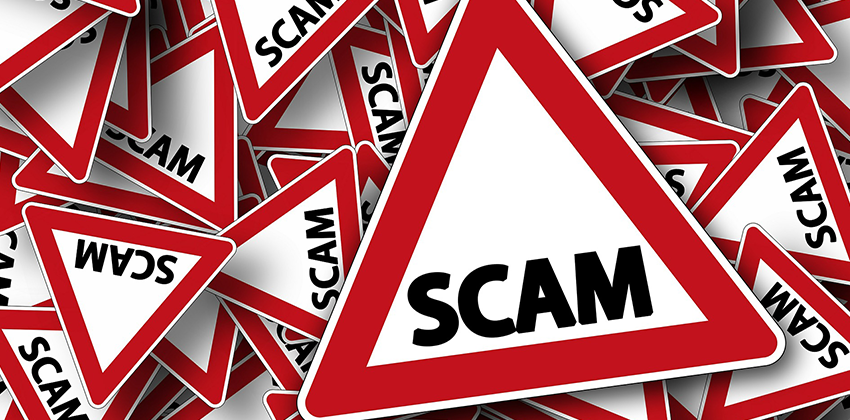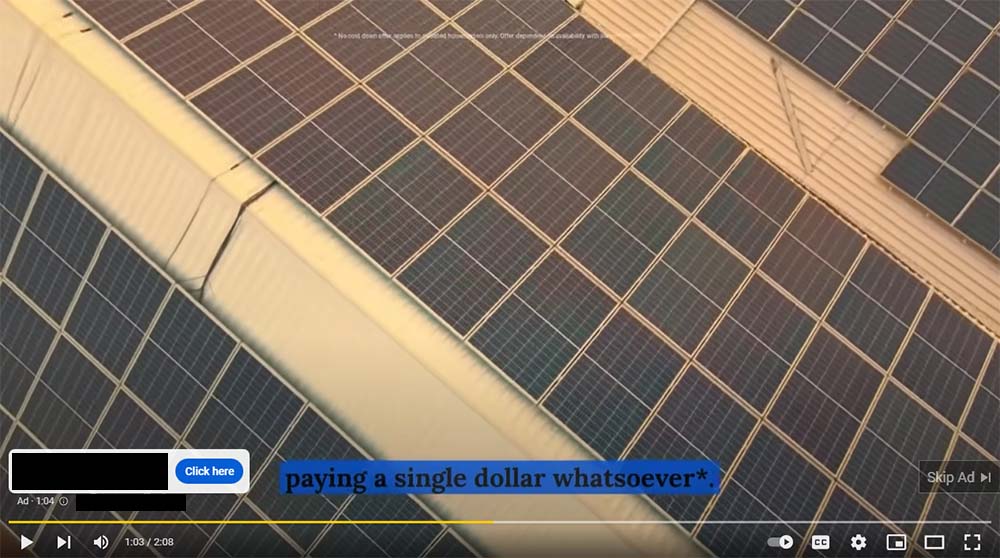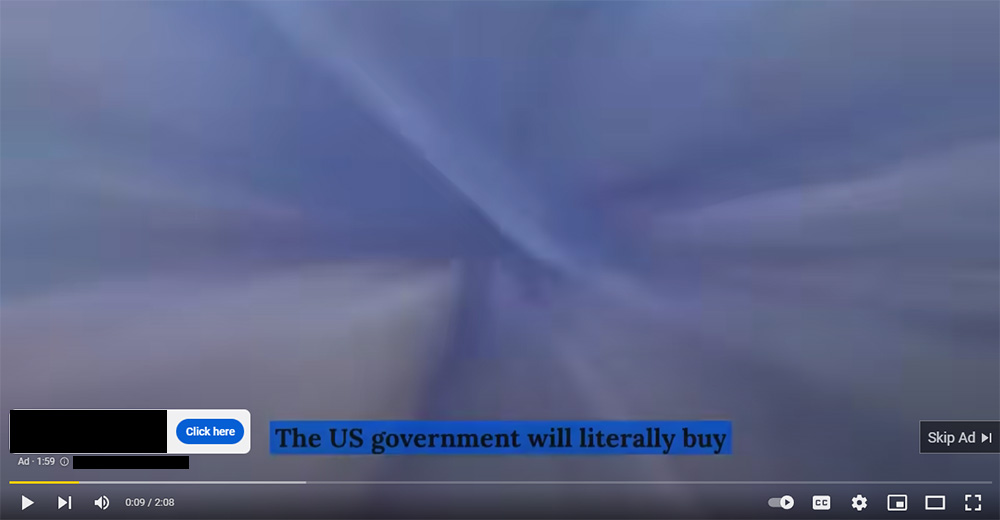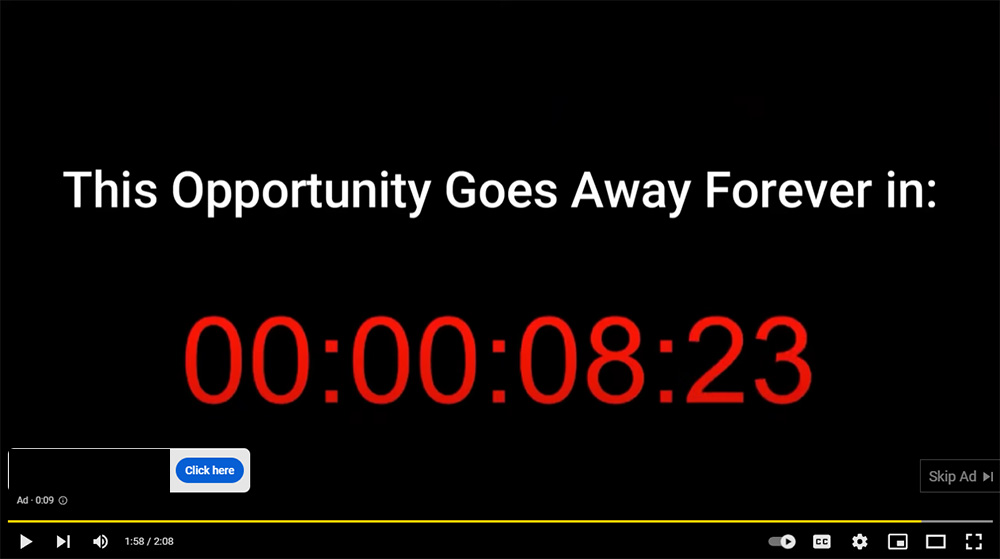Solar Panel Scams

When done right, going solar can substantially reduce your carbon footprint and your energy costs. However, this rare double-whammy of benefits also makes the residential solar industry ripe for scams.
Solar panel scams use the desire to save money and contribute to a better future to mislead homeowners into making quick decisions based on incomplete or inaccurate information. However, a little due diligence goes a long way, and just because there are dishonest players in the solar industry does not mean that the entire industry is a scam.
In this article, we’ll explore:
First, let’s establish the definition of a solar panel scam so we know what to look for.
What is a solar panel scam?
According to Merriam-Webster, a scam is “a fraudulent or deceptive act or operation.” So, by definition, solar panel scams are operations that use deceptive acts to try to sell solar systems.
Unfortunately, we have to use this broad definition because there are a handful of different types of solar panel scams floating around the industry.
So, let’s take a look at some common solar scams so you are better prepared to identify and avoid them.
Types of solar scams
There are several types of solar scams that range from slightly dishonest to borderline predatory.
Let’s start with the one I’m sure we’ve all seen on Facebook and YouTube: “Free solar panels.”
Free or no cost solar scams
Advertising free solar panels is deceptive and dishonest – the very definition of a solar scam. In fact, we wrote an entire article about it.
In short, free solar panel ads are typically for leases and power purchase agreements (PPAs). These arrangements are basically long-term solar system rentals in which the solar company owns the panels and homeowners pay a monthly fee in lieu of their electricity bill.
So, are homeowners technically paying for solar panels in a lease or PPA? No. But does that mean it’s free solar? No, that would be like saying you got a free pair of bowling shoes even though you paid $30 to bowl and you had to return the shoes when you’re done.
In fact, solar leases and PPAs are typically more expensive than owning panels in the long run, add no value to the home, and can be difficult (and expensive) to transfer in a home sale or end early.
You may also see ads for “no cost solar” or “zero down solar.” Again, this are misleading at best and fraudlent at worst. And it’s important to note that you can own solar panels with a zero-down solar loan just as easily as a lease or PPA (and the lifetime savings will be much greater).

Are all leases and PPAs scams?
No, not all leases and PPAs are scams. However, they seem to be a breeding ground for deceptive and predatory practices, including the old “government is paying people to go solar” scam.
Related reading: Solar Leases vs. Solar Loans vs. Solar PPAs
“Government is paying people to go solar” scams
Another solar scam floating around Facebook and YouTube is the “government is paying people to go solar,” like the one below.

Although there is a 30% federal tax credit, in addition to state and local incentives, available to homeowners that install solar and/or battery storage systems, that does not mean the government is paying people to go solar.
Here’s why:
- The 30% solar tax credit is exactly that – a tax credit. That means you first have to purchase the solar system before you can claim this incentive on your federal tax return.
- The federal solar tax credit is worth a maximum of 30% of what you paid for solar and/or battery storage. That amounts to a nice discount, but it doesn’t mean the government paid you to go solar.
- You must own the system to collect the tax credit. Like “free solar” scams, the “government is paying people to go solar” line is typically used to push solar leases and PPAs. But if you sign up for a lease or PPA, you don’t qualify for the tax credit – the company that owns the system does.
This is essentially a classic bait and switch scam. A solar company uses the premise of getting 30% off solar to get homeowners to sign a lease or PPA, and then collects it for themselves.
In extreme cases, solar scammers may even pose as utility or government officials trying to promote a new or unique solar program in your area. Now, any government or utility official trying to sell you solar panels should raise a red flag because governments and utilities don’t sell or install solar panels.
The bottom line is that there are solar incentives that can help reduce the cost of going solar. However, be wary of anyone pushing incentives too hard, especially if they are instilling a dire sense of urgency, like the YouTube ad below.

Promising unrealistic savings
Another scam used to sell solar panels is promising unrealistic energy cost savings.
Now, going solar is a way to save on energy costs for many homeowners. However, it’s a steady, long-term investment like real estate or 401k – not a get-rich-quick scheme.
Here are a few solar scam red flags to look out for:
- Claims that solar will “completely eliminate your electricity bill.” Many utilities have monthly fees that solar can’t offset
- Including an incentive that you don’t qualify for. Some solar incentives are subject to income and geographical restrictions. Make sure you qualify for the incentives that are factored into your estimated savings.
- Overestimated savings. Scammers may use exaggerated figures to make your estimated solar savings appear greater than what’s reasonable.
- Unexplainably low prices. As with any home improvement project, the lowest bid is rarely the best.
- Anything free. Anything advertised as free is likely a distraction from something that will end up costing more money.
Scams are often pushed using an urgency piece like “this program ends soon” or “we can only offer this price for so long.” Going solar does – and should – take time. Don’t let a pushy salesperson use urgency to cloud your judgment.
As a rule of thumb, listen to your gut. If something feels off or too good to be true, take the time to ask questions, learn more, and consult people you trust.
With that in mind, let’s look at some ways to avoid solar scams.
How to avoid solar scams
Scams are a blight on the solar industry, but that doesn’t mean home solar itself is a scam.
Here are some tricks to avoiding solar scams, finding reputable installers, and enjoying the benefits of home solar.
Get multiple quotes
If you only listen to one sales pitch, it can be easy to get sucked into a scam. However, if you compare a three or more solar quotes, you’ll get a better sense of:
- Fair pricing
- Reasonable estimates for savings and payback period
- Available incentives
- Standard practices and warranties
Getting multiple quotes gives you a baseline that makes it easy to identify solar scams.
Take the time to vet solar installers
Vetting installers is crucial to avoiding solar scams. Going solar is basically investing tens of thousands of dollars in your energy future, so you should really get to know the company handling your investment.
Here are some things to look for:
- How long has the company been doing business in your area?
- Are they fully licensed and insured?
- Are the members of local and national solar industry groups? (Pro tip: Check with the industry groups to see if the installer is a member)
- Do they have a proven track record of good customer service and craftsmanship? (Check for reviews on third-party sites like Google, Yelp, and BBB)
- Do they offer a workmanship warranty?
The vetting process takes time, but it’s well worth the effort to protect your investment. If an installer is in any way discouraging or trying to bypass the vetting process, that should raise a major red flag.
Is anybody combatting solar scams?
If you’re waiting for a massive coordinated campaign to eradicate solar scams, don’t hold your breath.
However, that doesn’t mean nothing is being done to combat solar scams. Rather than playing the whack-a-mole game of identifying and stopping scams, the industry is focused on building a more transparent marketplace and empowering homeowners.
In particular, Electrum – the parent company of solar.com – was founded in direct response to scammy, unethical sales practices in the solar marketplace.
The heart of solar.com is its network of vetted installers. Before joining the network, each installer must pass a rigorous vetting process that includes a review of the company’s financials. At a bare minimum to be considered, a company must have:
- 3+ years of experience
- Full licensure and insurance
- An excellent track record of customer service and craftsmanship
At the end of the day, fewer than 30% of the solar installers that apply are accepted into solar.com’s network (we’re that picky), but we believe homeowners deserve honesty, transparency, and peace of mind while they make a major life decision.
Connect with an Energy Advisor to learn more about the solar.com marketplace.
Solar panel scam FAQs
Are solar panels a scam?
There are undoubtedly scams to be aware of in the solar industry. However, that does not mean the entire concept of home solar is a scam. When installed by a reputable solar company, home solar can provide substantial energy cost savings and carbon emission reductions.
Always get multiple quotes and thoroughly vet solar installers before investing in home solar.
Is free solar panels a scam?
Free solar panels are indeed a scam. This deceptive marketing tactic is often used to promote solar leases and power purchase agreements (PPAs), which come with long contracts and monthly payments that escalate over time.
Calling a solar lease or PPA “free solar” would be like saying you got “free bowling shoes” even though you paid $30 to go bowling and had to return them when you were done.
How can I avoid solar panel scams?
Getting multiple quotes and thoroughly vetting installers is the best way to avoid solar panel scams. You can also use solar.com to compare quotes from our network of thoroughly vetted installers.
Our vetting process includes an analysis at each company’s financial standing and fewer than 30% of the installers that apply to join the solar.com network are accepted. This strict process brings trust, transparency, and peace of mind to our marketplace.